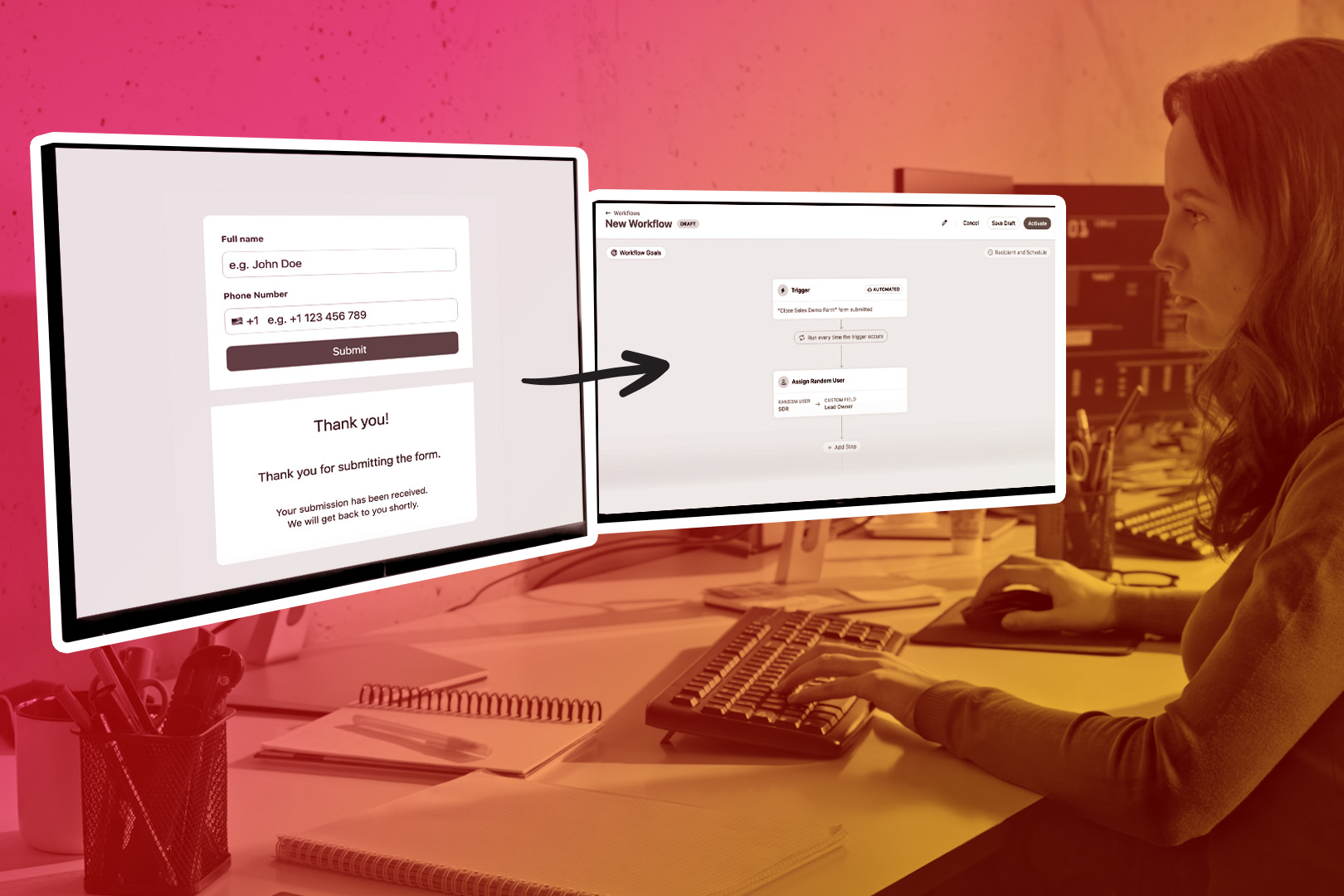Many businesses used to rely on tradeshows and conferences to generate leads and fill their pipeline.
Right now, and for the foreseeable future, tradeshows are dead.
So, now what?
If you relied on tradeshows and conferences, how can you keep selling without your core lead generator?
It’s time to adapt to the crisis.
Here are six ideas on what you can do to get the ball rolling and adjust to this new reality:
1. Work with the Organizers of Tradeshows to Build Virtual events
You’re not the only one hurting because your favorite conferences were canceled. The organizers of these events are also hurting.
The result? These people are creative, seeking ways to continue their efforts virtually.
So, contact them and find out what their plans are to generate value for their community.
They might be doing the following:
- Virtual conferences
- Online meetups
- Webinars
Once you know their plans, find ways to integrate yourself into these new events by offering value.
To start, pick the events that generate the most high-quality leads for your business and offer real value to their organizers.
Here are two ways you can offer value and get value in return:
Become a Sponsor
Many of these organizations are hurting because they’re not getting the sponsorships they planned on. Their regular sponsors may not be as willing to invest in an online event.
Here’s the opportunity for you:
If you know this conference generates high-quality leads for your business, why not become a sponsor?
You’ll likely get a fantastic deal, becoming one of the event's main sponsors for a much lower price. That gives you the leverage to dictate some of the agenda, own more sessions, or even send dedicated emails to their entire list.
In the end, you get a bargain, help your favorite conference, and get valuable leads in return.
Offer to Help Run the Event
What if the conferences and tradeshows you know and love don’t have any real plans for this year?
Offer value by giving them ideas on how to continue their events online.

Maybe these people aren’t super tech-savvy, and they’re just unsure how to run an online event. In that case, tell them about other virtual conferences that are doing well now and off to jump in and help them run their virtual event.
Once again, you’ll be offering value and getting value in return.
But what if the organizers aren’t going for it?
2. Run Your Own Virtual Event
Maybe the organizers of your favorite event aren’t able to run a virtual event. If so, no sweat: just do it on your own.
Create an unconference that focuses on the event that was supposed to take place. It’s easy to promote this type of event because you already have an audience that was excited about an event that is now canceled.
On a smaller scale, you may decide to run:
- A mini un-conference that leans on the original name
- An unofficial virtual meetup
- A series of webinars
- Video interviews
Any of these will appeal to the conference's original audience and generate hot leads for your business.
To start, make a list of the people who were supposed to speak at the event. Then, reach out to them, let them know what you’re planning, and ask for their support.
Once you’ve made a solid plan, promote it to the same audience planning to attend the original event.
Your message could go something like this:
“We love this conference, and we’ve attended every year for five years. Since it’s not happening this year due to the COVID-19 crisis, we’ve decided to run a one-day online event with the original speakers.”
Use the original event hashtags to reach their audience, and promote your event as being inspired by the canceled conference. It’s for the same audience, but it’s something different.
3. Use Social Media to Connect with Fans of This Conference
Start by looking for hashtags and conversations that are related to the event that has been canceled.
You’ll find posts from people who are heartbroken that they won’t be able to attend the event, who bought tickets or flights that they won’t use, or who are disappointed to miss out on the information that will be presented.
Collect the names of these people you find on social media and contact them individually. Let these people know whether you’re running your event or organizing something alongside the original conference.
You can also use social media to source ideas for your related content. For example, why not ask some of these people about the main things they learned at last year’s event? Then, you can write a blog post detailing the best points of last year’s conference.
Social media is a powerful tool; with hard work and little luck, you even start a new trend. Create your hashtag about the event being canceled, and use that to push valuable, related content to a hungry audience.
4. Leverage the Contacts You Made at Previous Events
You've already collected valuable contacts if you’ve attended this conference in the past few years.
You probably have lists of emails, business cards, and names of the people you met at past conferences. Use these old email lists to amplify your efforts.
For example, if you’re planning a virtual event or webinar series, why not reach out and let them know?
Or use their insights to create relevant content. For example, why not send out a survey to these people? Ask them what they’re doing this year instead of going to the canceled event or what trends they’re seeing in the industry.
Then, you could create an industry report based on the comments from attendees of this event.
5. Double Down on Intelligent LinkedIn Outreach
LinkedIn has over one billion users and saw a huge lift during the pandemic as much of the business world shifted to online. With that came a suite of new tools that enable salespeople to prospect effectively on LinkedIn.
ReachHub is a new tool that allows salespeople to source leads directly from LinkedIn. Search for the people you'd like to reach, click on the ReachHub Chrome extension, and add them to an email campaign—ReachHub will do the rest.
With just one click →, ReachHub will look at the profile, find the user's personal and work email from its database, and automatically enroll them in the drip email campaign of your choice.
6. Start Experimenting with and Learning New Channels for Lead Generation
How many different lead generation channels have you tried?
You’ve probably tried many different channels but found that none were as useful as tradeshows and conferences.
Well, times have changed. Now, investing in different lead generation channels isn’t optional; it’s necessary for the survival of your business.
Redirecting to new lead-gen channels doesn’t happen overnight. You’ll need to be dedicated and patient to develop these channels over time.
But the effort is worth it: Doing this will help you be more stable and less reliant on one lead source channel.
Here are some ideas to start with:
- Look for social media groups that you should be a part of on Facebook, LinkedIn, or Slack
- Start doing more LinkedIn outreach
- Try outbound sales campaigns
- Build your content marketing strategies and use SEO to get more organic traffic
This could also be the time to start spending money on ads. Prices are decreasing, allowing you to advertise in places you never could. Along with new ad opportunities, you could also try retargeting to people who showed interest in the canceled event or who attended last year.
Gather ideas and make a plan to develop these new lead-generation tactics.
Generate New Sales Leads Despite Canceled Events
While we’re all disappointed that our favorite events have been canceled, there’s no reason your lead generation should suffer this year.
Even if you did depend on tradeshows and conferences to fill your pipeline, there are plenty of ways to continue finding new leads and developing a solid pipeline.
Remember, many of your favorite events are now planning virtual events, and you could get in on the ground floor to participate in those. You can also run mini-events around the canceled event or develop relevant content for the event’s audience through your blog or social media.
By exploring and developing new lead generation channels, you’ll build a solid foundation for your pipeline now and into the future.
That way, once we’re out of this downturn, you won’t just return to how things were: You’ll have a stronger, more stable lead gen base and be even better prepared for future sales.










.jpg)

